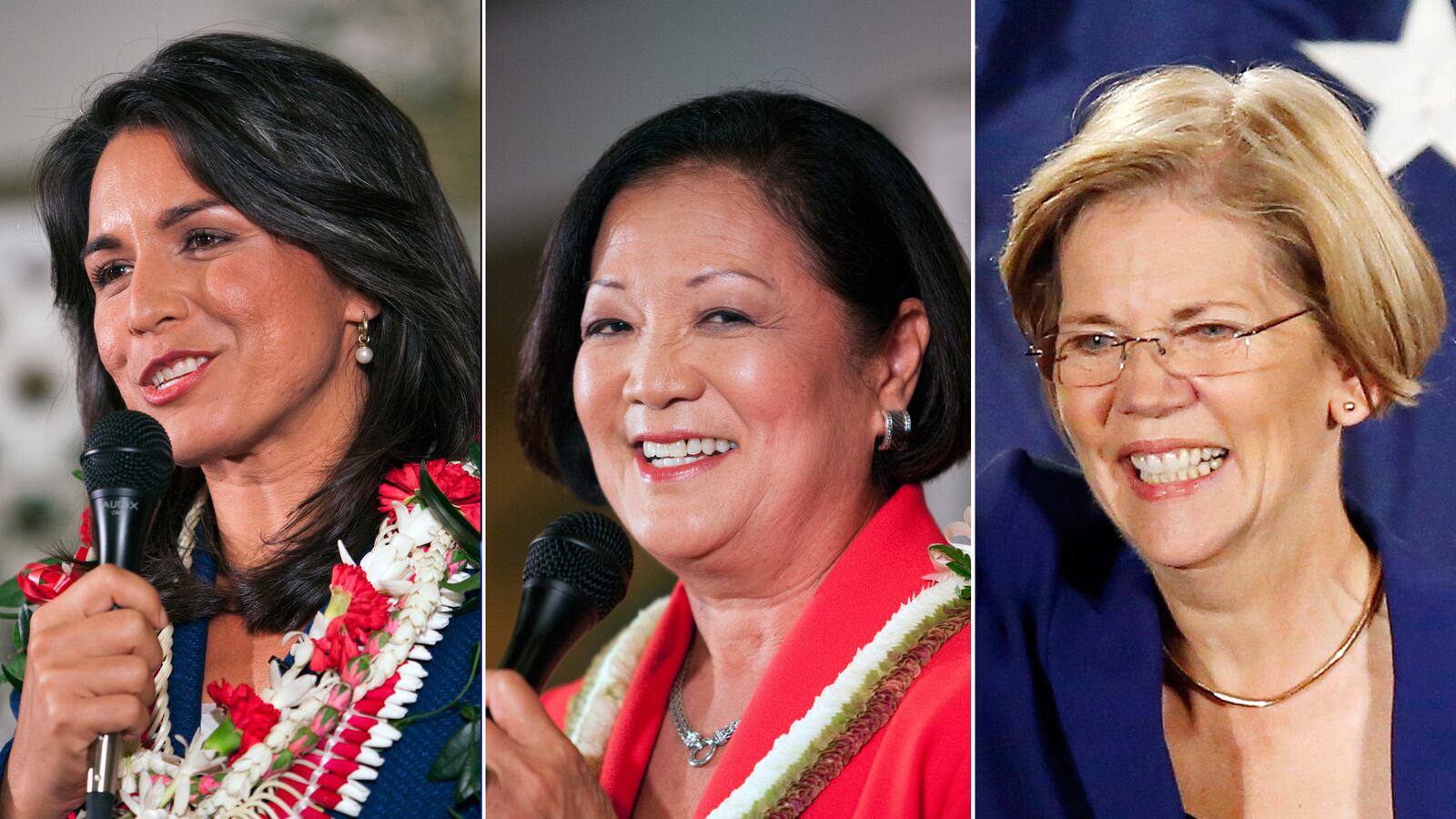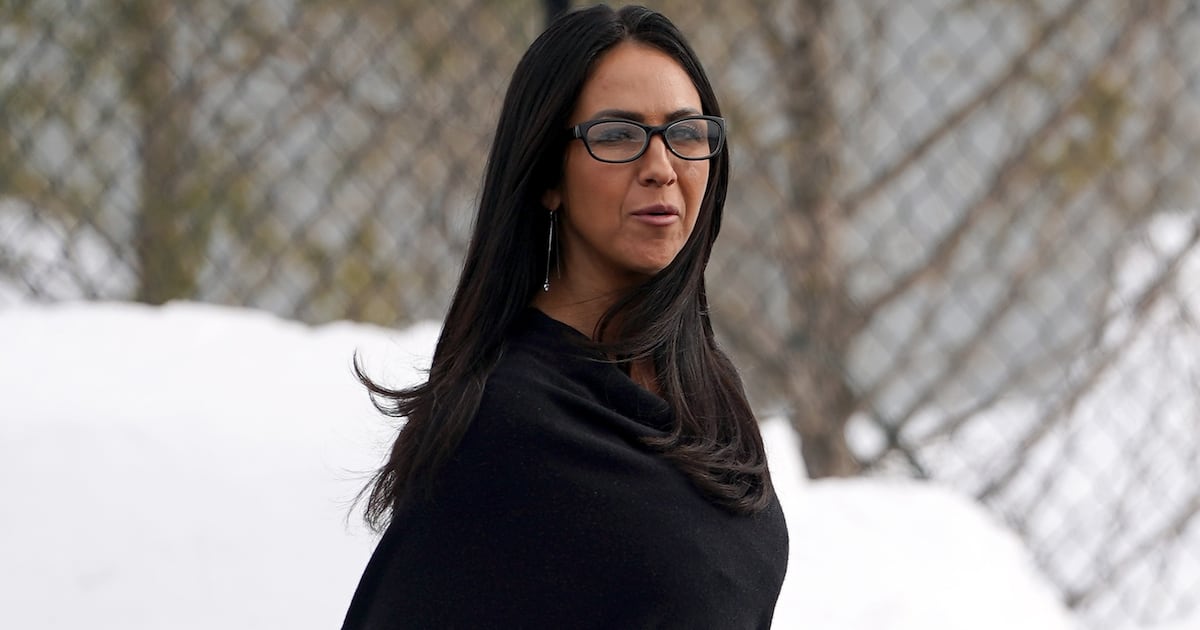Women made history this week, scoring a slew of interesting firsts for Congress, including the first openly gay person in the Senate, the first Asian-American woman in the Senate, and the first Hindu-American in Congress. A record number of women—binders full, some might say—will serve in Congress, with 20 in the Senate and at least 76 in the House, according to the Center for American Women and Politics.

New Hampshire became the first state ever to have women in all of its top elected positions—a female governor, two female U.S. senators, and two women in the House. As the state’s new governor, Maggie Hassan will be the only female Democratic governor in the country when she takes office—and the only female governor who supports abortion rights. She beat out Republican Ovide Lamontagne, stressing the importance of women’s reproductive rights, and will replace retiring Gov. John Lynch.
In an an all-women Senate square-off in Hawaii, Democrat Mazie Hirono defeated Republican Linda Lingle, becoming the state’s first-ever female U.S. senator. Hirono is also the country’s first Asian-American woman elected to the Senate. In addition, she’s the first U.S. senator born in Japan—and the second woman of color to serve in the Senate, according to the Center for American Women and Politics. Hirono replaces retiring Democratic Sen. Daniel Akaka.
Hawaii also elected the country's first Hindu-American to Congress, with Democrat Tulsi Gabbard winning a House seat. She defeated Republican Kawika Crowley and replaces Hirono, who moves on to the Senate.
Massachusetts elected its first female U.S. senator, with Democrat Elizabeth Warren’s high-profile defeat of Republican incumbent Sen. Scott Brown. In her win of the key Senate seat once held by Ted Kennedy, Warren, a former Harvard professor and supporter of Occupy Wall Street, triumphed over a tsunami of criticism from her opponent, including accusations that she had no proof of the Native American ancestry she claimed.
Wisconsin will send its first woman to the Senate as well, electing Democrat Tammy Baldwin, who also becomes the first openly gay person in the U.S. Senate. She beat out popular former governor Tommy Thompson for the seat of retiring Democratic Sen. Herb Kohl.
In North Dakota, Democrat Heidi Heitkamp became her state’s first female U.S. senator. She defeated Republican Rep. Rick Berg in a heated race for the seat of retiring Democrat Kent Conrad.
In the Senate, 11 women won their races, including five newcomers and six incumbents. Nine women who were not up for reelection this year will remain in the Senate. In the House, with three races not yet called at press time, 17 newcomers were elected, joining 59 incumbents who were reelected.
The House will host a record total of 28 women of color, including 13 African-American women, nine Latinas, and six Asian/Pacific Islander Americans, according to the Center for American Women and Politics. The new women in the House include two military veterans: Democrat and double-amputee Tammy Duckworth of Illinois, as well as Gabbard, the Democrat from Hawaii.
A record number of women ran for Congress this year, with 18 running for Senate seats and 166 vying for the House. Women faced off against women for the same seat in three Senate races and in 11 House races. Heading into the election, women held a paltry 16.8 percent of the seats in Congress.
“Our voices decided the election,” Tara McGuinness, executive director of the Center for American Progress Action Fund, said in a statement. “Our vision—for the country, our families, and futures—should be at the center of the governing agenda.”
Women’s votes were indeed decisive, with a majority of women (55 percent) casting their votes for President Obama, according to an analysis of exit-poll data by the Center for American Women and Politics. A majority of men (52 percent) voted for Mitt Romney. Romney’s support among women voters was around 44 percent. While Romney won a majority of white women’s votes (56 percent), the majority of both black women and Latinas voted for Obama.






